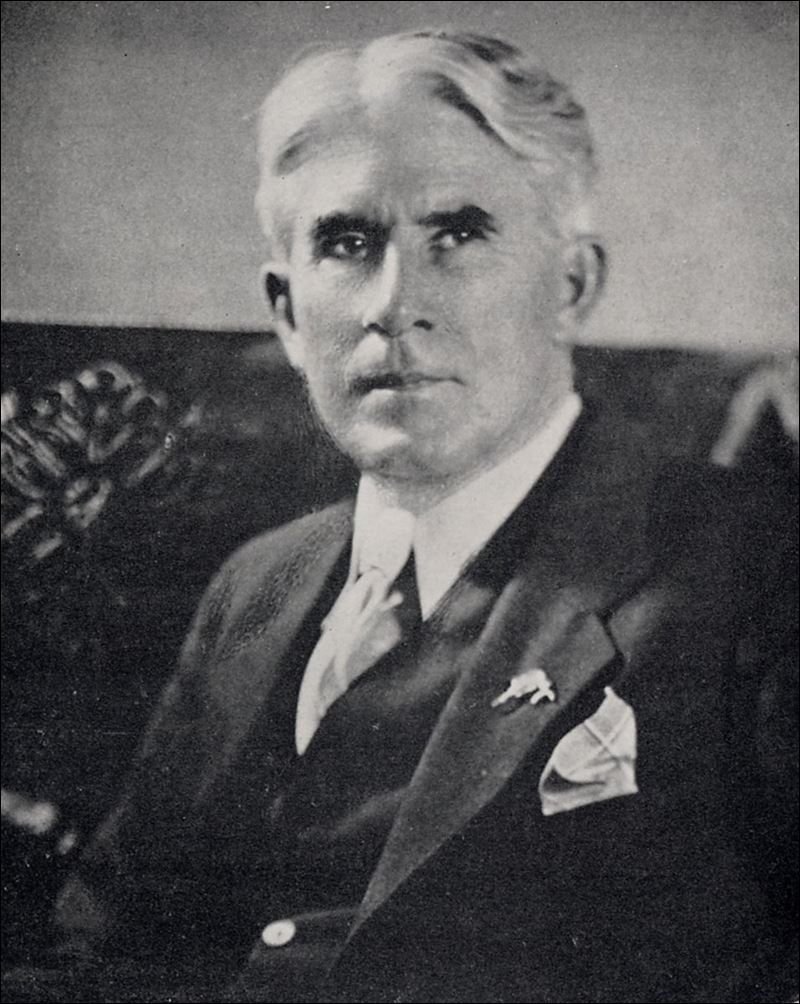My father-in-law, who grew up in Paulding, Ohio, loved reading the novels of Zane Grey in his youth. Near the end of his life, after his vision failed him, his eldest daughter, my wife, read to him some of these stories, both the westerns and the hunting and fishing tales.
I don't recall ever reading even one of Grey's books, but I was interested in a brief article about him I found in an old issue of Smithsonian (December 2001). Several things in this biography intrigued me.
He was born, Pearl Zane Gray, in Zanesville, Ohio, in 1872.
An outstanding baseball player in college (University of Pennsylvania), he was among the first pitchers to master the curveball.
"Grey has been credited with establishing the shape of the 20th-century western novel," Jake Page writes in the article.
Among his 89 books was one western set in Australia.
More than 100 movies have been based on his stories, and he formed his own production company to make western movies.
He had a strong dislike for Tom Mix, the star of several Zane Grey movies, because Mix was a noisy neighbor on Santa Catalina Island.
Grey once sailed to Tahiti in his yacht.
Yet one fact about Zane Grey's life has stuck with me most over the past several days. His father, a dentist, did his best to discourage his son's passion for writing stories, going so far as to tear up an early story and give the boy a thrashing. Young Pearl Gray surrendered to his father and became a reluctant dentist himself. That is, until he was 33 and broke free to follow his own dream.
The same issue of Smithsonian contains an excerpt from a book by paleontologist Michael Novacek, Time Traveler: In Search of Dinosaurs and Ancient Fossils. Novacek recalls attending a Catholic school, where the nuns disciplined him for reading concealed science books in class.
I wonder how many children, especially gifted children, have had their passions discouraged by parents, teachers or friends, however well-meaning these parents, teachers and friends may have been. Many people graduate from high school or college without knowing what they want to do with their lives, but others find their passions very early in life. For some kids it's computers. For others it's art. For others, like Novacek, it's science or, like Grey, writing.
Not all such discouragement is necessarily a bad thing. Children, left to themselves, would probably devote all their time to only those activities that most interest them, to the neglect of other things that will help them develop into a healthy, more rounded adult. My mother was always trying to get me to go outside, away from the books I wanted to read and the stories I wanted to write. Yet today I don't really regret those hours spent playing and working outdoors.
In some cases, discouragement may even be beneficial. I caught a couple of minutes of a TV show this week about ice skater Tonya Harding. Tonya spoke of how her mother discouraged her and made her childhood extremely difficult. Her mother's version was that Tonya was the kind of child who responded to reverse psychology: Tell her she couldn't do something and she became determined to do it anyway.
Most people, like Grey and Novacek and even Tonya Harding, seem to manage eventually to do, or at least to attempt to do, what they wanted to do all along.

No comments:
Post a Comment